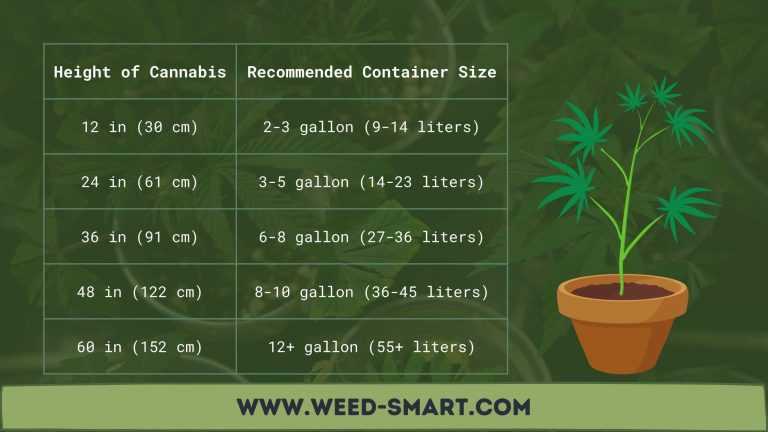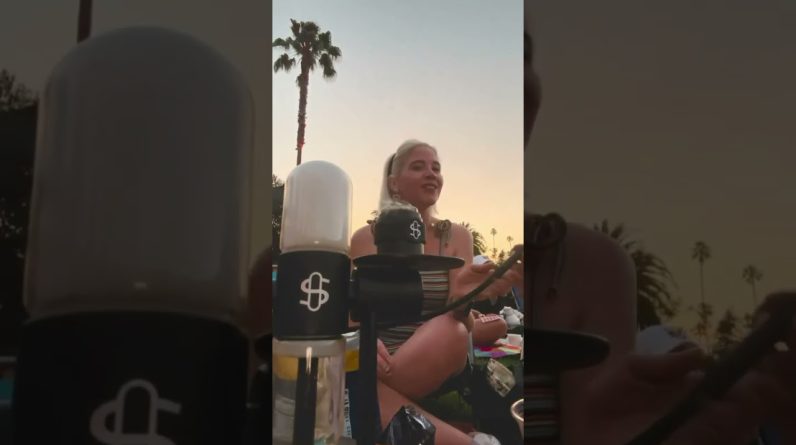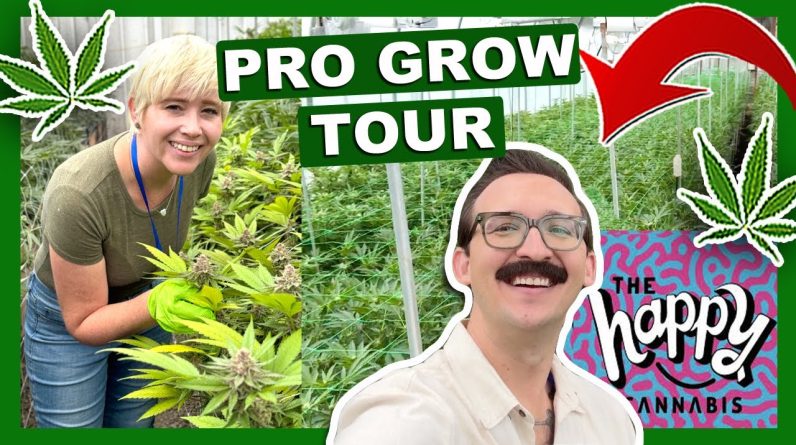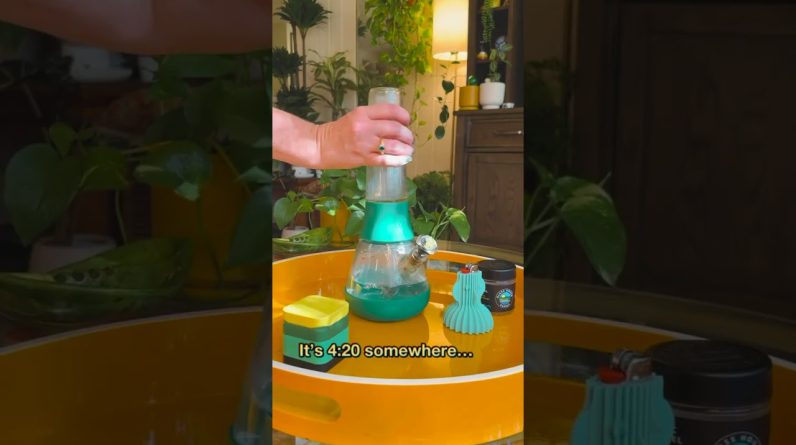Several reasons may cause your Cannabis plants to have stunted growth. These include poor genetics, clone stress, lack of oxygen, root health problem, light issues, overwatering, incorrect pH levels, inappropriate temperature and container, pests and insects, and tissue damage. When you notice them right away, you can save them by taking precautionary measures.
Why did my Cannabis plants stop growing?
How big should my plants be after two weeks?
Your Cannabis plants are expected to be 2-3 inches (5-7 cm) tall after two weeks. They will have three nodes that include cotyledons and seed leaves. Thus, if your Cannabis plants are not in this size by two weeks, you have to take action, for they may be experiencing slow growth.
Why are my Cannabis plants growing slower?
Your Cannabis plants may suddenly halt their growth and development without showing any early signs. You may wonder why they grow slowly, but keep in mind that it does not happen out of the blue. There are several factors behind the slowed growth of your Cannabis plants. Let us explore the underlying causes of the slow and stunted growth of your Cannabis plants.
Low-quality Seeds
Planting low-quality and old seeds will take longer to germinate, aside from growing at a reduced pace. Thus, good genetics is vital for healthy growth from seed to harvest.
Clone Stress
There are times that Cannabis cuttings do not root very well. As a result, it hampers their growth. Ensuring that the growing medium is humid but not too moist can promote root growth of Cannabis cuttings. In addition, keep a pH level of 6.0 and a temperature of around 72º Fahrenheit (22º Celsius). As a rule of thumb, if it is too cold, cuttings will not root; and they will die if it is too hot.
Lack of Oxygen
The metabolic process of your Cannabis plants slows down when they are not getting enough oxygen. In some cases, insufficient absorption of oxygen may stop their growth altogether.
Overwatering or utilizing substrates with poor drainage affects the roots and may result in insufficient oxygen absorption. To resolve, use a light and airy growing medium with good drainage. Adding more perlite to soil can help oxygen go through the ground.
Root Health
Exposing roots to light is terrible for their health; that is why using a non-transparent container is a must to prevent light from reaching the roots of your Cannabis plants. When roots are physically damaged or attacked by molds and bacteria, it could lead to stunted growth of your Cannabis plants. Also, when roots are exposed to too hot or too cold temperatures their growth can be slowed down.
Light Issues
Cannabis plants generate chlorophyll, which converts light into food energy essential for their development. When your Cannabis plants are not getting enough light, it will stunt their growth. On the other hand, when Cannabis plants are exposed to direct sunlight without rest, it can also halt or slow down growth.
Overwatering
Overwatering is a common mistake for novice growers. When your Cannabis plants are given too much water, they will suffocate, leading to slow growth, root rot, fungus, and other crop problems.
To evaluate if your Cannabis plants need watering, lift the pot, and if they feel light, it is time to water them. Also, you can insert your finger on the soil for about 2 inches and feel if they are dry or not.
If you want to learn more about correctly watering your cannabis plants you should check out the video we made about that topic.
Incorrect pH Level
Another reason for the stunted growth of your Cannabis plants is the incorrect pH level. Cannabis plants thrive in a relatively small window of appropriate pH values. Thus, if the pH level is erroneous, plants cannot absorb nutrients.
Correct pH level is vital to ensure the healthy growth of your Cannabis plants. If you grow Cannabis plants hydroponically, an optimal pH level is about 5.6 to 5.8. If you use soil as a growing medium, the pH level should be around 6.5 to 7.0. Cannabis farmers cultivating in a soilless manner, such as coco, regulate the pH level of 6.0 to 6.3.
Inappropriate Temperature
Cannabis plants grow healthy and metabolize best during daytime temperature between 77°-86° Fahrenheit (25°-30° Celsius). A temperature lower or higher than this range will stunt the growth of your Cannabis plants.
Adjust the temperature of your growing environment, such as providing cooling with fans that blow mild airstream over your Cannabis plants. It can help stop the formation of hot air pockets inside your growing environment. When the temperature is high, it could result in heat stress that can slow down or stop the growth of your Cannabis plants.
Container too Big
If you start cultivating Cannabis plants in a large container, there is a high risk of overwatering. Your Cannabis plants cannot absorb all the moisture inside a large pot, unlike mature crops that drink much more. Also, using large pots for seedlings takes too much time to dry out, making your growing medium damp, and leading to possible root problems.
Pests and Insects
Insects, pests, and diseases are dangerous to your Cannabis plants’ immune systems. They may survive but will produce poor yield. In the worst case, your crops could die.
Insects eat leaves that can affect Cannabis plants’ ability to keep water and transpire. Also, they may damage the roots of your crops. Thus, instead of using its energy to grow, it will give off its energy for defending itself and healing from damage.
Tissue Damage
Broken branches and other physical damages can slow down your Cannabis plants’ growth. Instead of using its energy to grow or flower production, it will redirect to repair their wounds. Seedlings and young Cannabis plants are susceptible to tissue damage. It is advisable to cultivate seedlings indoors to mature for some weeks before placing them outside.
When you prune your crops excessively or too frequently, your Cannabis plant will spend more energy from healing than growing. Also, when you overdo it, it can delay the development of your Cannabis plants for days, if not weeks. Thus, high-stress plant training techniques can also cause tissue damage that will hinder your Cannabis plant growth.
How to fix and prevent stunted growth in cannabis plants?
Knowing the causes of stunted growth of your Cannabis plants can give you ideas on how to grow your plants healthier and faster. Follow these pieces of advice to make your Cannabis plants grow inches a day. Also, following them will fix the stunted growth of your Cannabis plants.
Fixing Light Intensity Issues
If stunted growth is due to a light-related problem, you need to adjust your light’s intensity. If you are growing indoors, place your hands under the growing light for about 30 seconds to test whether it needs adjustment. If it is too hot for you, it is also too hot for your Cannabis plants.
If you suspect the stunted growth of your Cannabis plant is due to a lack of lighting, increase the power of the light or bring it closer to the crop when growing indoors. If you are cultivating Cannabis plants outdoor, move your plant to a sunnier spot.
If stunted growth is due to too much light, decrease light intensity or move your growing light further away from the canopy when cultivating Cannabis indoors. If you are growing Cannabis plants outdoor, move your plants to a place where light is diffused, like around a tree.
Fixing Damage Tissues
If your Cannabis plants got injured, the only thing you can do about it is found out its cause. The following may help you fix damaged tissues:
- If strong winds damage the branches, you have to support them with a bamboo stake or similar.
- If an object fell on your Cannabis plants and broke its branch, try to fix it using duct tape to hold it in place until it heals.
- If the damage results from tying the branches too tight, remove them and tie them again.
If you are cultivating Cannabis plants outdoors, you need to locate your crops in a place safe from strong winds and heavy rains. You may also use wire and stakes to serve as support.
Fixing Environment Issues
Ensuring your growing environment is at optimum is vital to avoiding environment-related issues. Regulate the temperature between 77°-86° Fahrenheit (25°-30° Celsius) since Cannabis plants metabolize best during this daytime temperature. Also, you have to adjust the humidity in every stage of your Cannabis plants. Keep it at 60% relative humidity during the seedling stage, 50% during the vegetative stage, and 40% during the flowering stage.
Fixing Root Problems
Providing enough oxygen, regulating temperature, choosing the correct container, and watering only when needed can help you fix root problems.
Suppose the root problem is due to either overwatering or underwatering. In that case, it is recommended to water your plant twice a day at first, focusing more on frequency rather than amount during the seedling stage. Then, daily watering is advisable when using small pots during the vegetative stage. Switch to watering every two days if you have large containers. During the flowering stage, your plants consume the same volume of water as they did during the late phase of the vegetative stage.
Thick and muddy soil will deter roots from absorbing enough oxygen for your Cannabis plants. Thus, using healthy soil is a must to let roots absorb oxygen and essential nutrients for the healthy growth of your crops.
Planting your Cannabis plants in a right-size container will make roots spread out and grow accordingly without getting damaged and twisted. When your plant grows bigger, you need to transfer it to a larger container to avoid rootbound roots. Also, make sure to have an appropriate drainage hole in your potted plants for runoff water. You may also add perlite to improve drainage at the roots. To select the appropriate pot for your Cannabis, refer to the table below:

Being Alert and Responsive
Of course, the best way to ensure that Cannabis plants will grow healthy is to monitor them for at least a minute or two every day. Checking them from time to time will help you reveal recurring problems your crops are experiencing.
Whenever you check on them, try to look at these symptoms, for they might cause severe problems if left overlooked:
- drooping leaves
- leaves discoloration
- bugs or webbing
- molds or white patches
- twisted growth
- yellow or brown edges of leaves
As long as you stay alert, you can save your Cannabis plants from any risks. Be responsive and fix what needs to be fixed right away!
The post Why did my Cannabis plants stop growing? appeared first on Weed-Smart.
Source: https://weed-smart.com/why-did-my-cannabis-plants-stop-growing/






